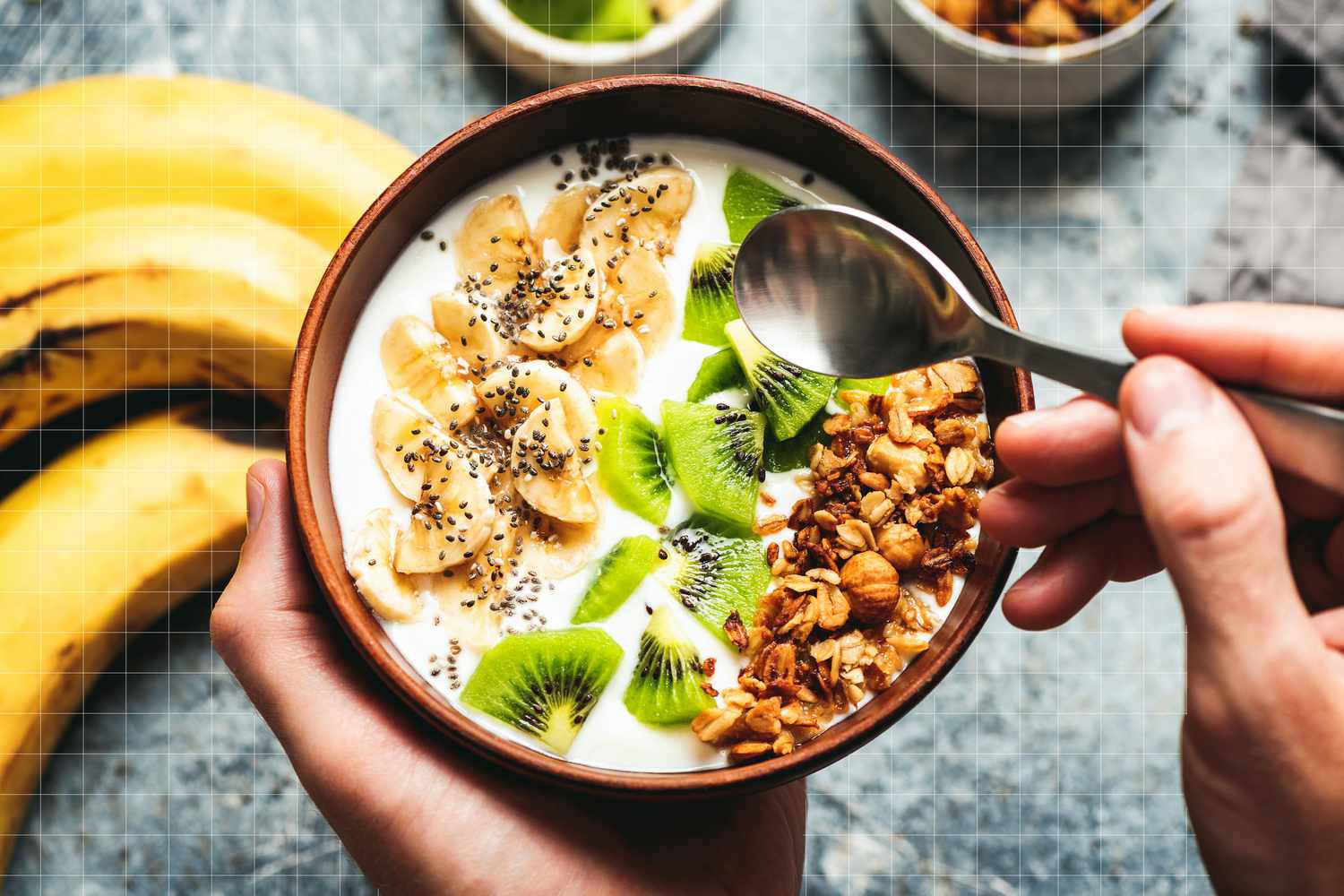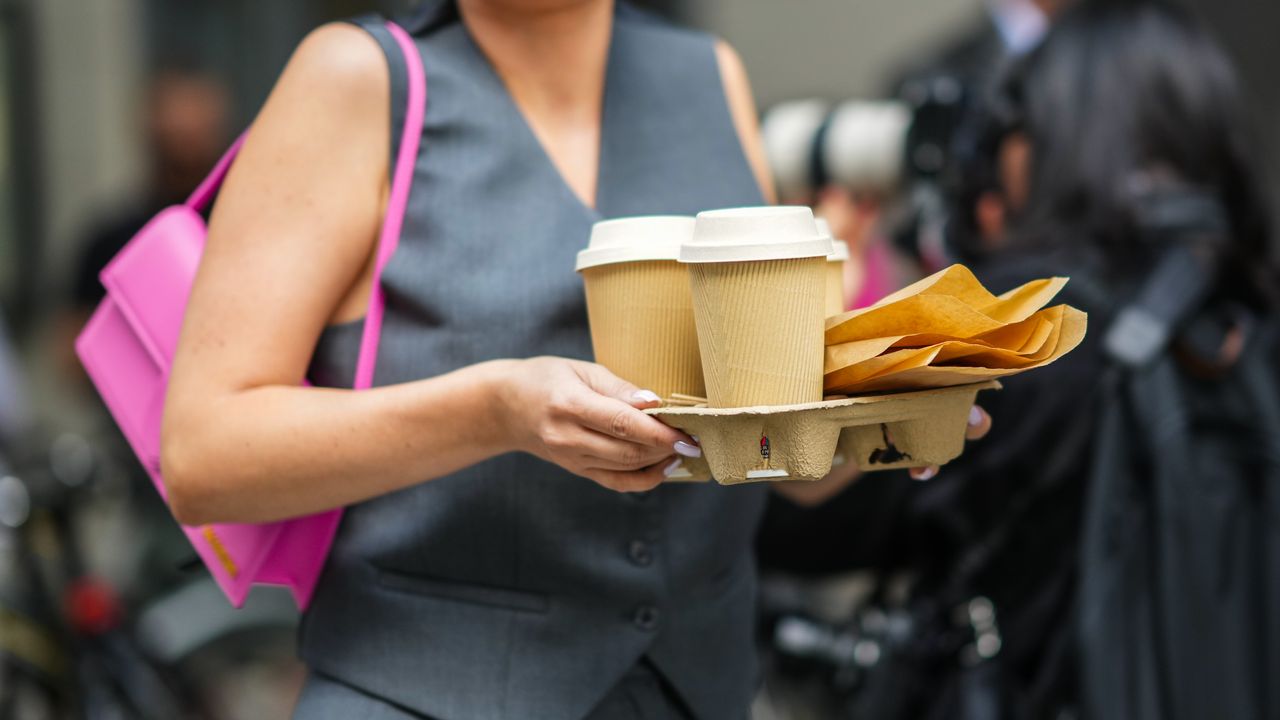
The #1 Fruit to Help You Poop, According to Dietitians
Key takeaways
- Kiwi’s fiber and water content can help make stool easier to pass.
- Kiwi contains actinidin, a digestive enzyme that may help keep food moving more quickly through the digestive tract.
- Regular physical activity and getting enough fiber and magnesium in your diet can help keep you regular.
If you’re having trouble going No. 2 or find yourself straining on the toilet, you’re not alone. It’s estimated that up to 20% of Americans experience constipation. In many cases, constipation can be remedied by making a few adjustments to your diet. High-fiber foods, in particular, can go a long way in making your bathroom trips more pleasant. That said, some foods are better than others for helping you poop.
While it might not be the first fruit that comes to mind, kiwifruit (often just called “kiwi”) is one of the best options for keeping things moving through your gastrointestinal tract. “Kiwi contains an effective combination of both soluble and insoluble fiber, as well as naturally occurring digestive enzymes that can help promote bowel movements,” says Kelsey Russell-Murray, RD, M.Sc. Not only can kiwi help alleviate constipation, but it also offers a variety of essential nutrients, like vitamin C, potassium and vitamin K. Learn more about this small, tropical fruit that may be your secret weapon to staying regular.
Why Kiwi Is the #1 Fruit to Help You Poop
It’s High in Fiber
In one study, eating two kiwis daily was comparable to taking psyllium—a popular fiber supplement—for its effects on improving constipation, notes Amanda Sauceda, M.S., RD, creator of the Mindful Gut. This isn’t particularly surprising, as kiwi is an excellent source of fiber, providing 5 grams in a single cup. “Fiber helps your bowels stay regular, and that, in turn, can help with other digestive issues like constipation and bloating,” says Sauceda.
Besides its total fiber content, kiwi stands out as a source of both soluble and insoluble fiber. Both types of fiber are important for digestive health. Insoluble fiber bulks up stool and keeps things moving, while soluble fiber helps soften stool, making it easier to pass.
It Contains Digestive Enzymes
Digestive enzymes are found in a variety of foods, including kiwis. Digestive enzymes help break down what you eat and keep your digestive process moving at a regular pace. Cari Riker, RDN, LDN, CDCES, founder of Riker Nutrition Consulting, says that kiwis contain a specific type of enzyme called actinidin, which helps break down protein. While more research is needed on the benefits of actinidin for constipation, this enzyme may have a slight laxative effect by speeding up the movement of food through the GI tract.
It’s a Source of Water
Staying hydrated is essential for managing constipation, especially when increasing total fiber intake. “When consuming a lot of fiber, it is important to increase water content to help the stools pass easier,” says Riker. Drinking water is an obvious and important way to hydrate, but an often-overlooked source of water comes from the foods you eat. Fruits and vegetables are top contributors to hydration in the diet, and kiwi is no exception. One cup of kiwi contains approximately 5 ounces of water.
Other Strategies to Keep Yourself Regular
Move More Throughout the Day
Physical activity isn’t just good for your heart, bones and muscles—it’s also important for your digestive tract. “If you are experiencing constipation, it is important to not stay sedentary—get up and move to improve your gut motility,” says Riker. While research isn’t conclusive as to why physical activity prevents constipation, studies have shown that when physical activity increases, constipation often decreases.
While regular exercise is important, it doesn’t have to involve lengthy gym sessions or an hour on the treadmill. “Movement doesn’t have to be intense, because even a walk after eating can be very beneficial,” says Sauceda. Research suggests that just 30 to 150 minutes per week of moderate-intensity activity can help prevent constipation.
Consider Magnesium
If you’re chronically constipated, adding more magnesium to your diet may be helpful. “Magnesium is particularly effective for relieving constipation,” says Danielle Zold, RD, LDN, CLC, CGN, owner of Nourished Pediatrics. Magnesium supplements can also be used in the treatment of chronic constipation. However, as certain types of magnesium may be more helpful than others, it’s best to work with a registered dietitian or other health care provider for personalized advice.
Be Wary of Supplements
Supplements to treat constipation may not be beneficial, especially long-term. Besides potential concerns around quality and too-good-to-be-true claims, Sauceda warns that relying on supplements to poop may be a sign of something more serious and is a reason to talk with a health care provider about your bowel habits. It’s especially important to note that laxatives can have mild to serious side effects and should not be used long-term unless under the supervision of a health care provider.
Ultimately, while supplements and laxatives might seem like a convenient fix, it’s best to work with a health care professional to identify the root cause of your constipation.
Eat Enough Fiber
Most Americans don’t eat enough fiber, which can have a cascade of negative health effects, including increasing the risk for constipation. “To help stay regular, I encourage consuming a diet rich in fiber, at least 25 grams per day for women and 30 grams per day for men,” says Riker. Because fiber comes from plant-based foods, incorporate more produce, beans, whole grains, nuts and seeds to meet your daily fiber goals and keep constipation at bay.
Top-Rated High-Fiber Recipes to Try
The Bottom Line
Constipation can be uncomfortable and frustrating. Fortunately, making simple lifestyle changes, like adding a kiwi or two to your diet, may offer relief. Kiwis are high in fiber, contain digestive enzymes and provide water, all of which can help make your stools easier to pass. Of course, simply eating more kiwi is unlikely to solve your bathroom problems. Other factors, like your overall fiber intake and how physically active you are, also play a role in managing or preventing constipation.










